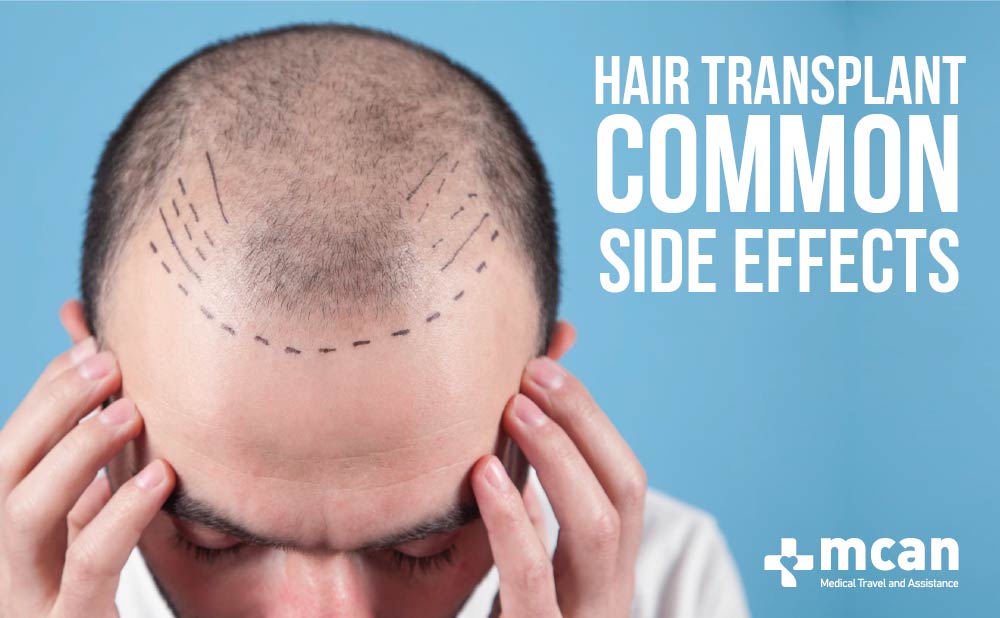
Hair transplant side effects are the most important thing that people should be aware of after a hair transplant procedure. A hair transplant has been a permanent solution for hair thinning. It is a one-day procedure that takes 6-8 hours and gives its best results in 18 months. Therefore, patients should be patient about the final results. At the same time, they pay should attention to the aftercare instructions of hair transplant in which they encounter common hair transplant side effects.
Most Common Hair Transplant Side Effects
Hair transplant treatment has temporary side effects, such as bruising, crusting, swelling, etc. These are usual hair transplant side effects that patients should not panic about. As mentioned before, hair transplant side effects that most patients experience are not permanent and are also part of the recovery process of hair transplant.

What are the Hair Transplant Side Effects?
After a hair transplant procedure, patients can experience the following:
Discharge on Donor/Recipient Area
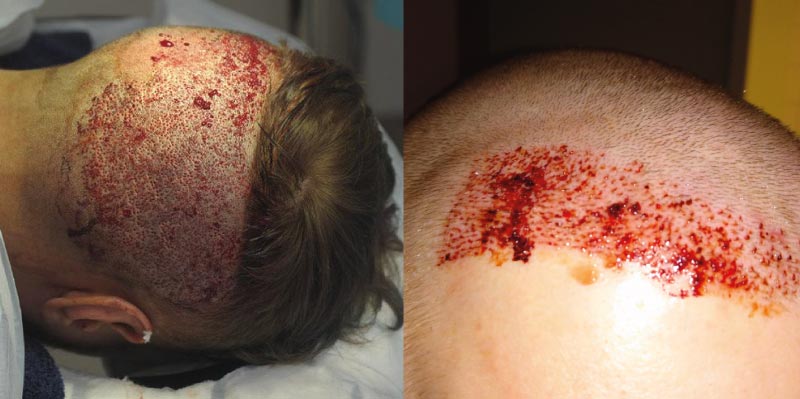
On the 1st and 2nd nights of the hair transplant procedure, patients can experience discharge (bleeding/plasma) in the donor or the recipient area; if the patients use aspirin, vitamins, alcohol, and other blood thinners, the risk of discharge after the procedure increases. That’s why medical experts recommend patients stop using blood thinners and alcohol before the hair transplant procedure.
If you discharge on your donor or transplanted area, you can use cotton to clean it gently. Please avoid rubbing the blood leftovers in order not to dislocate the hair follicles.
Crusting
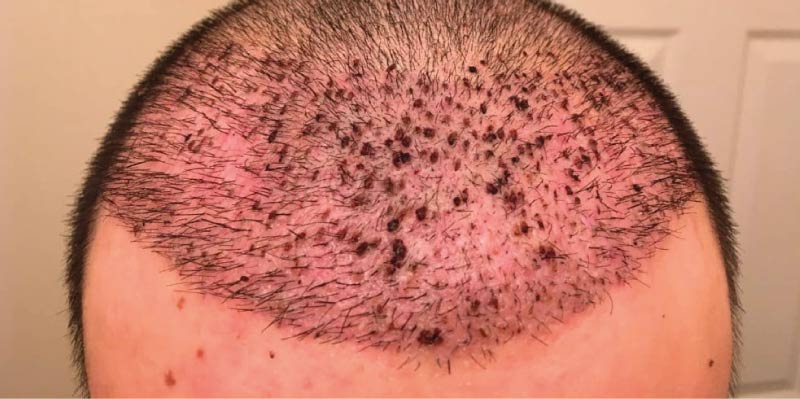
Crusting on the treated area after a hair transplant procedure is one of the ordinary side effects. Patients should avoid scratching crusts in this phase. In 1-2 weeks, crusting disappears. Patients can remove the crusts with the help of pressure-warm water while doing the hair wash. But do not pick the crusts off!
Edema (Swelling)
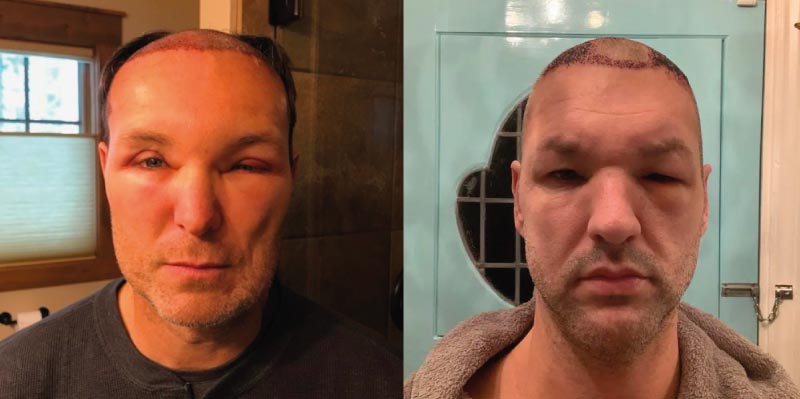
Edema or swelling is another common hair transplant side effect which might be seen during the first 48 hours after the hair transplant procedure. If you are experiencing swelling on your forehead or around your face, your surgeon puts on a bandage to help you with the swelling.
Shock Loss (Hair Shedding)
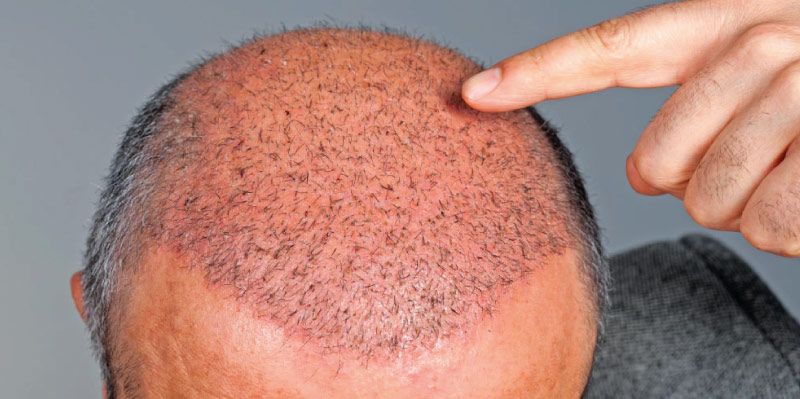
One of the most common side effects of hair transplant treatment that patients become stressed about is shock loss. Shock loss can be seen in 1-3 months; in this stage, your transplanted hair, existing hair, or donor area, depending on the trauma, can fall out. It is the usual, expected, and average side effect most people experience. Do not get worried. After the shock loss, your hair grows back!
Pitting
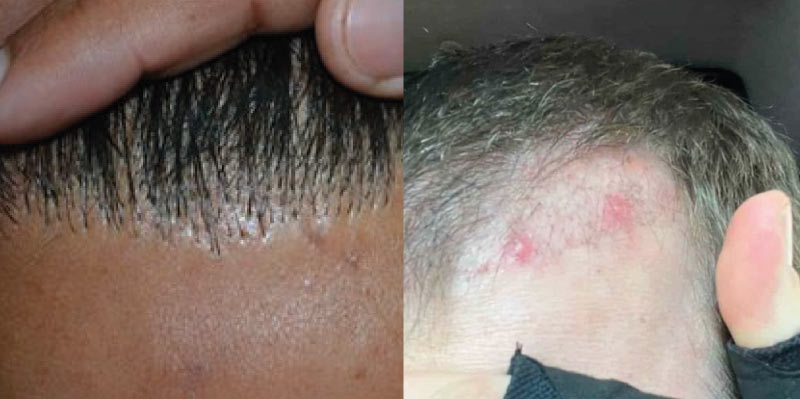
Pitting or acne is another common side effect of hair transplant, which can be seen after a shock loss. If patients wash their hair regularly and massage the scalp, the pitting is gone quickly!
Pain
Although patients do not feel pain during the procedure thanks to local anesthesia, they can feel slight pain after when the sedation’s effects fade away. Pain after a hair transplant procedure is entirely normal; MCAN Health provides its patients with the necessary painkillers and antibiotics to get over the process quickly.
Itching
Itching is one of the most common hair transplant side effects. It might be the most annoying side effect, which may continue for 2 weeks. However, it is also a sign of healing. Patients shouldn’t itch or scratch in order not to do any harm to grafts.
To reduce itching during the hair transplant recovery, you can use salt water spray and a special shampoo while washing your hair. You can ask for the best shampoo for your hair to your doctor.
If the itchy feeling doesn’t go away after 2 weeks, please get in touch with your patient experience specialist.
Scalp Necrosis
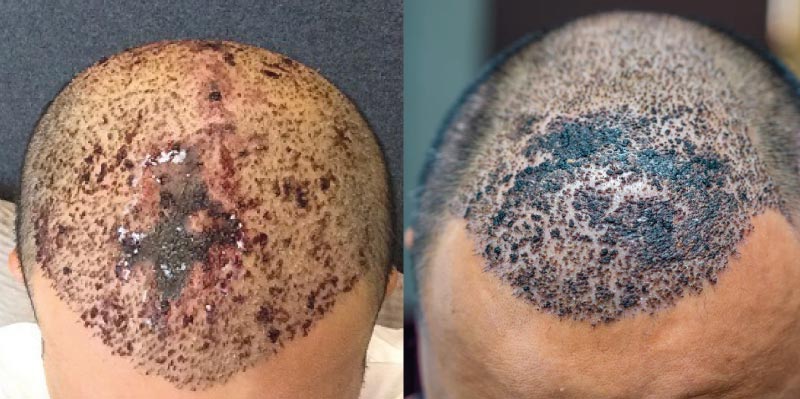
Scalp Necrosis is the rarest hair transplant side effect; however, it is the worst complication of the procedure. It occurs because of insufficient supply and can cause inanimate tissue. To prevent scalp necrosis, patients choose a reliable clinic with experienced surgeons!
To learn more about hair transplant in Istanbul with MCAN Health, please reach out to us righ away!
 Mesotherapy for Hair: A Practical Treatment
Mesotherapy for Hair: A Practical Treatment  5 Signs You Are Ready for a Hair Transplant: What to Look For
5 Signs You Are Ready for a Hair Transplant: What to Look For  How Many Hair Transplants Can a Person Have?
How Many Hair Transplants Can a Person Have?